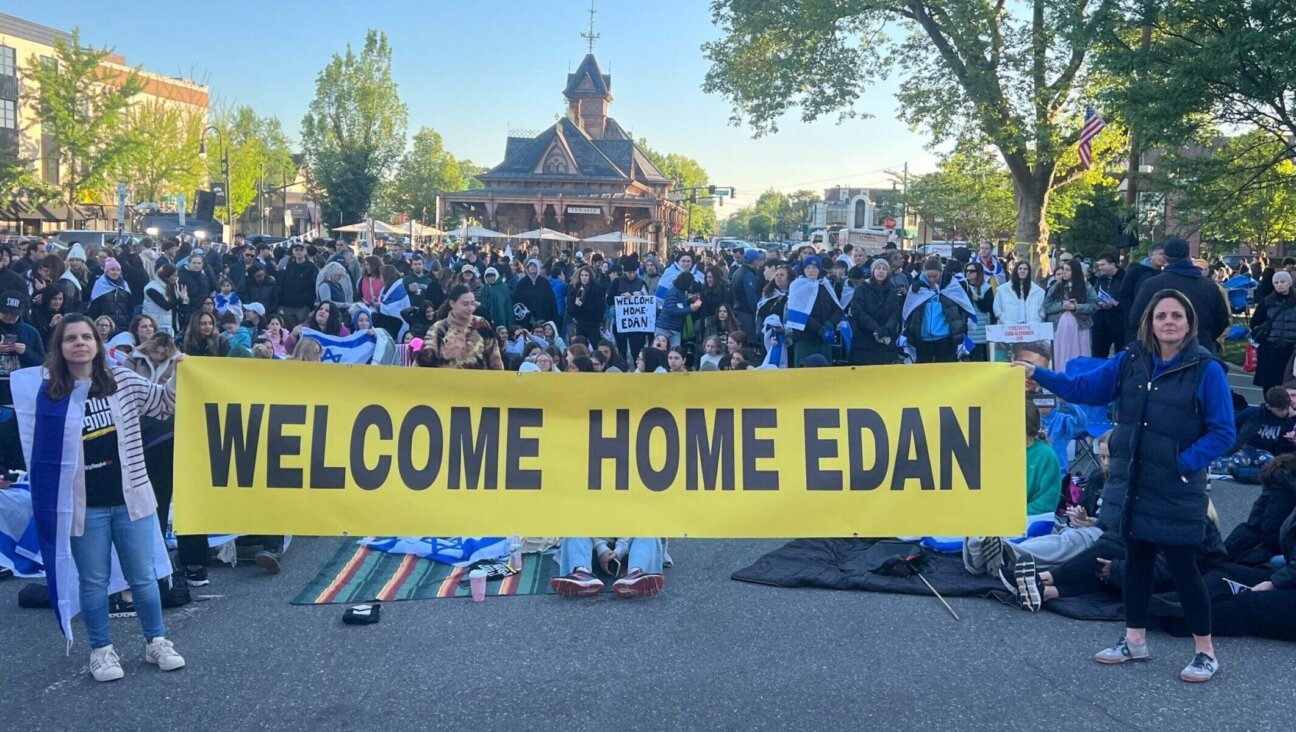The Day Women of Wall Gained Legitimacy in Jewish World

Image by haaretz
The Women of the Wall left the site feeling elated. Two human chains of policemen opened paths on the left and on the right, surrounded by an ocean of Haredi men and women. As they walked, the women, wrapped in prayer shawls, sang Ozi v’Zimrat Yah Vayahi li lishuah, a song marking the Sivan Rosh Hodesh (first day of the new month of Sivan) prayer.
People yelled slogans like “go back to Germany” and other vile calls. Minutes later, a few stones slammed into the bus carrying the women away. This is how it ended this time. Until next month.
During Friday’s Rosh Hodesh Sivan prayer at Western Wall, there was much more than Chillul Hashem (desecration of the name of God) and a desecration of the holy place – but besides this small matter, both sides, the Haredim and Women of the Wall, earned points. The Haredi women leaders and the rabbi of the Western Wall, Shmuel Rabinowitz, flexed their muscles and created a deterrent for the next time. Minister for Religious Affairs Naftali Benett, Attorney General Yehuda Weinstein and the Ministry of Justice will surely not overlook this message when they sit down to formulate the new regulations for holy sites: The situation is untenable, they will say; the ruling by Jerusalem District Court Judge Moshe Sobel, that allowed the women’s prayer in plaza, cannot be tolerated.
For the Women of the Wall, 1st of Sivan, 5773 is a holiday, a day in which they have been granted historic legitimacy. For the first time since the group’s creation 24 years ago, they have been allowed to pray as they wish, with prayer shawls, with Tefillin, with song – and all in the holy site’s main plaza.
For more, go to Haaretz
The Forward is free to read, but it isn’t free to produce

I hope you appreciated this article. Before you go, I’d like to ask you to please support the Forward.
Now more than ever, American Jews need independent news they can trust, with reporting driven by truth, not ideology. We serve you, not any ideological agenda.
At a time when other newsrooms are closing or cutting back, the Forward has removed its paywall and invested additional resources to report on the ground from Israel and around the U.S. on the impact of the war, rising antisemitism and polarized discourse.
This is a great time to support independent Jewish journalism you rely on. Make a gift today!
— Rachel Fishman Feddersen, Publisher and CEO
Support our mission to tell the Jewish story fully and fairly.
Most Popular
- 1

Fast Forward Ye debuts ‘Heil Hitler’ music video that includes a sample of a Hitler speech
- 2

Opinion It looks like Israel totally underestimated Trump
- 3

Fast Forward Student suspended for ‘F— the Jews’ video defends himself on antisemitic podcast
- 4

Culture Cardinals are Catholic, not Jewish — so why do they all wear yarmulkes?
In Case You Missed It
-

Fast Forward In Tenafly, NJ, a crowd awaits the release of local son Edan Alexander from Hamas captivity
-

Fast Forward Hamas and Trump say Edan Alexander to be freed from Gaza after US negotiates release
-

Culture Should Diaspora Jews be buried in Israel? A rabbi responds
-

Fast Forward In first Sunday address, Pope Leo XIV calls for ceasefire in Gaza, release of hostages
-
Shop the Forward Store
100% of profits support our journalism
Republish This Story
Please read before republishing
We’re happy to make this story available to republish for free, unless it originated with JTA, Haaretz or another publication (as indicated on the article) and as long as you follow our guidelines.
You must comply with the following:
- Credit the Forward
- Retain our pixel
- Preserve our canonical link in Google search
- Add a noindex tag in Google search
See our full guidelines for more information, and this guide for detail about canonical URLs.
To republish, copy the HTML by clicking on the yellow button to the right; it includes our tracking pixel, all paragraph styles and hyperlinks, the author byline and credit to the Forward. It does not include images; to avoid copyright violations, you must add them manually, following our guidelines. Please email us at [email protected], subject line “republish,” with any questions or to let us know what stories you’re picking up.












